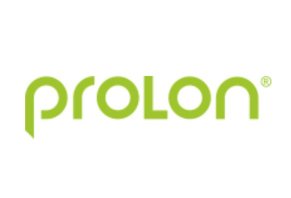What is ProLon?
Prolon claims that their plant-based, prepackaged meal program will nourish your body, promote rejuvenation, support metabolic balance, and offer weight-loss benefits.
ProLon states that through a fasting-mimicking diet (FMD), the described goals may be accomplished.
They claim that these benefits are possible by consuming the ProLon meal plan for 5 consecutive days and avoiding liquids other than water or herbal, and caffeine-free teas during this timespan. After completing the cycle, simply resume your normal diet.
According to their website, your 5-day supply of meals will allow you to avoid the pitfalls of fasting while still reaping all of the benefits. ProLon claims that their methods were put to the test in a clinical study.
In this article, we’ll review the results of this study to help you determine if ProLon is a safe and effective means of losing weight and supporting overall health.
How Does ProLon Work?
ProLon’s meals come in five boxes (one for each day) that consist of a variety of plant-based foods like energy bars, soups, snacks, drinks, and dietary supplements that are low in carbohydrates and proteins while containing good fatty acids.
Their foods are free of additives, preservatives, or chemicals, and provide between 770 and 1,100 daily. Per the FMD guidelines, each meal is plant-based, low protein, and low carb, with an emphasis on healthy fats.
The company tells us that your body won’t recognize these calories as food, thereby helping you to maintain a fasting mode, without actually fasting. By avoiding being in a “fed state,” ProLon is alleged to reduce growth factors, glucose, inflammation, and signs of aging.
ProLon recommends following the FMD once per month, for 3 consecutive months. Once you finish 3 cycles, you can use the FMP as needed when you are interested in rejuvenation.
But can these methods really offer lasting weight loss? More on this in the next section.
Is There Any Science Backing ProLon’s Claims?
Fasting mimicking dieting was the brainchild of Valter Longo, who developed the program at the University of Southern California.
Though these methods are patented, the FDA did not evaluate them.
Fortunately, we do have some published results from a trial that specifically tested ProLon that may help shed some light on this topic.
The findings of this 2015 study were published in Cell Metabolism. Researches examined the effects of the FMD on yeasts, mice, and human subjects.
Testing on yeasts differed when compared to mice and humans in that the yeasts rotated between diets consisting of nutrient-rich foods or water only every 48-hours. This method of periodic starvation increased the lifespan of the yeasts, as well as their survival when exposed to hydrogen peroxide.
The method of fasting applied to mice in this study was comparable to the FMD offered by ProLon.
Mice were fed a low calorie, low protein, and low carb diet for 4 consecutive days twice a month. Mice on the FMD diet improved metabolism, cognitive function, and life expectancy. They also lost more weight, had a higher bone density, and less cancer when compared to placebo.
Humans tested in the study similarly received a low calorie, low carb, and low protein diet, though they followed this meal plan for 5 consecutive days 3-months in a row.
Those randomized to the FMD experienced greater weight loss and fat reduction, better blood sugar control, and lower inflammatory lab test scores.
These results seem to be in line with a recent randomized trial where more than 70 subjects completed three 5-day cycles of FMD. Researchers concluded that FMD was associated with better BMI, blood pressure, cholesterol levels, fasting blood sugars, and inflammatory lab results.
While the available research is promising, we are unable to conclude as to whether these effects are sustainable without long-term data.
Is ProLon Safe?
Prolon’s plant-based foods are free of additives and intended to provide the nourishment your body needs while you “fast”, though this doesn’t mean that the program is free of risks.
The previously mentioned studies mentioned that only mild adverse effects occurred with FMD, though they did not specify what these were.
While fasting may be associated with many health benefits, it is not safe for everybody.
For example, fasting can be dangerous in diabetics and those that have challenges controlling blood sugar as it can cause unsafe drops in glucose levels. If you’re on a medication that suggests consumption with food, fasting may negatively impact how it works.
Kids, pregnant women, and other metabolically challenging states like wound healing require more calories and nutrients than are available when fasting. If you have a history of an eating disorder or are considered underweight, you should avoid fasting.
For these reasons, speak with your doctor to determine if ProLon or other fasting regimens are safe for you.
The Cost
Prolon’s meal boxes include 5 meals, 1 for each day, and they always ship free. You can get your ProLon directly from their website.
The purchasing options include:
Single-Order
For one-time purchases, you’ll pay $249/box when you buy 1 or 2 boxes. If you opt for 3 or more, you’ll pay $225/box.
Subscription
ProLon also offers a subscription service. You can set the delivery frequency at once every 1, 2, 3, 4, or 6-months and you’ll always pay $225/box.
It’s important to note that while ProLon does offer refunds, they only honor the return of unopened packages. Also, there is a $50 restocking fee/box, whether it was a single-order or subscription purpose.
For additional inquiries, contact support at customerservice@l-nutra.com or 888-618-1281.
What Are the Alternatives to ProLon?
Our research did not identify similar products that offer plant-based, prepackaged FMD foods. For the time being, it seems as though ProLon has cornered the market in this regard.
We were able to dig up several websites providing guides to help you “mimic” the FMD offered through ProLon’s prepackaged foods.
These entities essentially build their grocery list around the guidelines used in the previously mentioned research study.
Per the human trial portion of the study, the fasting-mimicking diet includes 5 consecutive days each month in which you adopt the following:
General Guidelines
- The diet is plant-based, low protein, and low carb.
- Obtain 30-50% of the RDA for vitamins, minerals, and fats
- Carbs should primarily be complex (no sugary, processed foods).
- Get healthy fats from sources like coconut oil, olive oil, nuts, etc.
Day 1
- Limit sugar intake to <30g.
- Your caloric intake should range from 4.5-7 kcal/lb of body weight (10% protein, 56% fat, 34% carbs)
Days 2-5
- Limit sugar intake to <20g.
- Your caloric intake should range from 3-5 kcal/lb of body weight (9% protein, 44% fat, 47% carbs)
Considering the cost of purchasing just 5 meals from ProLon, trying your luck at the local grocer is an easy way to spend just pennies on the dollar. Thus, this represents a much more cost-effective option.
The Bottom Line
ProLon tricks your body into believing it is in a fasted state by providing low calorie, nutrient-dense meals. Their methods have been successfully put to the test in a clinical study that delivered results comparable to those in other studies.
These studies demonstrated only short-term success, however. Long-term research is currently lacking. Thus data describing the sustainability of the benefits associated with FMD are still needed.
Though ProLon may be effective, it is quite expensive. You may be able to save a considerable portion of what you would pay for their products by following the FMP guidelines and shopping at your local grocer.
Fasting is not for everyone, however. Speak with your healthcare provider about ProLon to determine if fasting is right for you.


